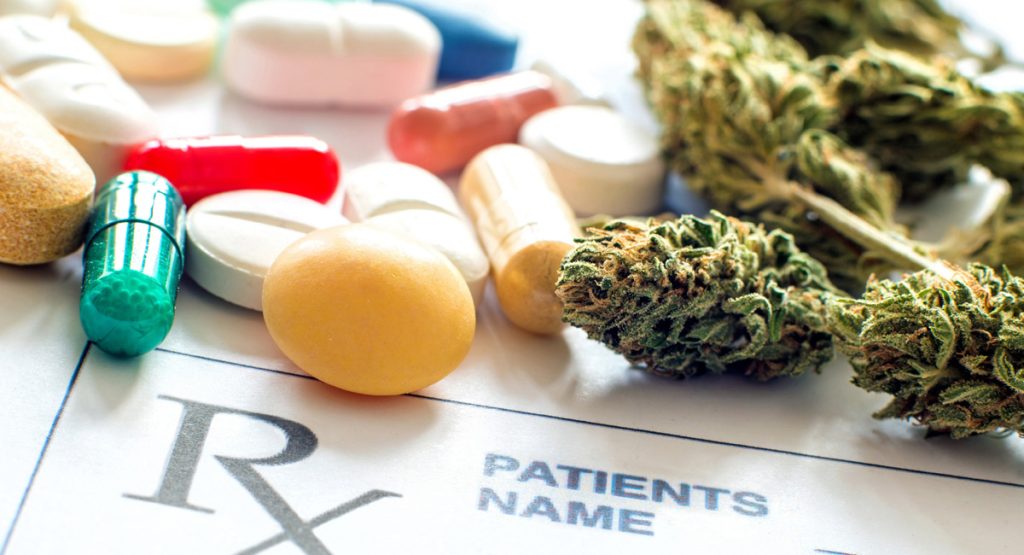With the growing popularity of cannabis and marijuana products, the demand for these products has also increased. It is not only the adults who are consuming it, but the hype is among the young generation too. Out of many cannabis products, there are a few compounds that are getting the most attention. These are CBD and THC.
CBD stands for Cannabidiol, which is the primary chemical compound of cannabis found in cannabis sativa plants. On the other hand, THC stands for Delta-9-tetrahydrocannabinol, which is the primary receptor that causes high sensation and acts as a drug.
THC is psychoactive, which affects mood, perception, and other mental processes. It produces the high effects of marijuana, whereas CBD is not psychoactive. It won’t make you feel high, but it can still have potential side effects, like making you feel relaxed. Though their chemical structure is the same, there lies a number of differences between the two. Let’s read the blog to highlight some differences between CBD and THC.
Difference Between CBD And THC
Chemical Composition
CBD and THC both have different pharmacological effects, but the chemical composition of both CBD and THC is the same. They both contain 21 carbon atoms, 30 hydrogen atoms, and two oxygen atoms. Now the difference between them lies when we talk about the positioning of atoms. Atoms in both CBD and THC are arranged differently. Since the positioning of atoms is different, CBD and THC have differing effects on the body.
Psychoactive Properties
A psychoactive substance is a substance that impacts cognitive processes (thinking, mood, perception, consciousness). It doesn’t necessarily only refer to recreational drugs—it can also include substances like nicotine or caffeine. CBD and THC affect different receptors in the brain. Because of this, CBD does not have psychoactive effects, so it won’t get you high. In contrast, THC does have psychoactive effects. The compound produces the chemicals that make you high that people associate with marijuana.
Varying State Laws
State laws are changing all the time for cannabis. Many states allow medical marijuana containing THC, but it is illegal under various state laws. In addition, there are some states that have made recreational marijuana with THC legal for personal use only. But there are few rules about where and how to sell CBD products. In addition, all CBD products are illegal if sold with the promise of medical benefits.
Potential Side Effects of CBD & THC
Cannabis has been used as a medicinal plant for centuries, and it’s only in recent years that science has started to catch up with traditional knowledge. Two compounds in cannabis, CBD and THC, have been the focus of research in current years due to their potential therapeutic benefits. However, these compounds can also have side effects that users should be aware of.
CBD, or cannabidiol, is generally considered to have a few side effects, and those that do occur are typically mild. Potential side effects of CBD may include the following:
- Fatigue
- Dry mouth
- Changes in appetite and weight
- Diarrhea
- Dizziness
- Changes in mood or behavior
On the other hand, THC, or tetrahydrocannabinol, is the compound in cannabis that’s responsible for the “high” that people experience. THC has more significant side effects than CBD, especially at higher doses. It can have more significant side effects than CBD, including:
- Impaired coordination and motor skills
- Anxiety or paranoia
- Hallucinations or delusions
- Increased heart rate and blood pressure
- Red eyes and dry mouth
- Memory impairment
- Addiction and withdrawal symptoms
Conclusion
While CBD and THC are produced from the same plant, there are several differences between the two; both can increase relaxation and sleepiness and relieve pain, but CBD has fewer psychoactive properties s compared to THC. In addition, there are various kinds of cannabis, so it is essential to know which one you should consume for less harm to the body.
It’s important to note that the side effects of CBD and THC can vary depending on the dosage, method of consumption, and individual factors such as age, weight, and overall health. As a result, some people may be more sensitive to these compounds than others, and some may be more prone to side effects.
It’s always a suitable idea to talk to a healthcare professional before using CBD or THC products, especially if you have a medical condition or are taking other medications. To get complete guidance and treatment, contact iCare Psychiatry and Behavioral Services PLLC. We help you determine if these compounds are safe for you to use and can advise you on the proper dosage and method of consumption.

